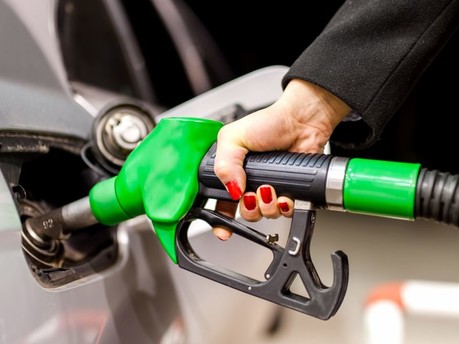Why are UK fuel prices so high?
Find out how the war in Ukraine and rising wholesale prices have affected fuel costs
If you’re a motorist in the UK, you’ve no doubt been hit hard by the rising price of fuel across the country.
In fact, fuel prices have risen at a record rate - the fastest in 30 years - adding to an increase in the overall cost of living in the UK. Pump prices have soared to nearly £2 a litre in some areas of the country, forcing drivers to pay a whopping 33% more for their tank of fuel in April 2022, compared to the same period last year.
So why are fuel prices in the UK so high? Well, it essentially all comes down to a rising cost of wholesale fuel. This of course has worsened due to Russia’s invasion of Ukraine, pushing up the price of oil even further, particularly for western countries.
If like us you had hoped the UK government would step in to save the day, then you’d be wrong… Initial promises by the chancellor, Rishi Sunak, took a tumble when the planned fuel duty cut designed to protect motorists, failed to intervene.
Unfortunately, there’s no set rule as to when and how often fuel stations can increase their prices. It is entirely dependent on if and when there are significant increases or decreases in the wholesale price of fuel, over a sustained period of time.
Fuel price data according to RAC Fuel Watch
Wholesale and retail fuel prices are monitored daily by the likes of companies such as the RAC. The RAC Fuel Watch monitoring initiative helps to ensure that retailers are charging a fair fuel price at forecourts across the country.
As such, the RAC has revealed some interesting fuel price data which demonstrates a trend in inflated prices over the years. Discover what they found…
Below is an image courtesy of RAC Fuel Watch that displays UK pump and wholesale fuel prices over time, in this case, January 2012 until January 2022. Here you'll see a steep rise in wholesale fuel prices as of January 2022 - a sharp contrast compared to January 2020 - when fuel prices were nearly as low as in January 2016.

The second image from RAC Fuel Watch demonstrates average UK petrol and diesel prices by year. This graph compares data from the year 2000 to the year 2022, and you can clearly see the varying shift in fuel prices during this time.

Ways to save fuel
We know what your next question is; how can you save on fuel? There are a number of ways in which you can cut costs - even if by a little - when it comes to topping up your tank of fuel. Here are our top ten Octane Finance tips to help save on fuel costs…
- Compare petrol prices in your area. There are a number of useful apps that compare cheap petrol and diesel prices, enabling you to save hundreds of pounds a year. Check out PetrolPrices and join over 2.1 million UK drivers who already use the app to make big savings.
- Consider where you top up. Did you know that fuel prices can vary by region? In fact, fuel prices in rural areas tend to be higher, so it could be worth making a trip into town to top up. It’s also worth remembering that motorway fuel station prices are usually higher than your local petrol station, so best to avoid them if at all possible.
- Avoid taking short trips. You’ll end up using more fuel by starting the engine for a succession of small trips during the day, so consider combining your journeys instead.
- Don’t be a speed demon! Although it’s tempting to arrive at your destination quicker, sticking to the speed limit will use up to 25% less fuel when going 10 mph slower than planned.
- Regularly check your tyres. Underinflated or overinflated tyres can make a big difference to fuel consumption, so always make sure they are set to the correct pressure.
- Lighten the load. Are you carrying around unnecessary items in your boot or on the back seats? Adding extra weight to your vehicle can unknowingly use up more fuel.
- Use the air-con in moderation. We appreciate you don’t want to sweat on hot days or shiver during cold ones, but being more mindful of how often and for how long you use the air-con in your car will help save fuel too.
- Avoid idling. It’s easy to do; whether you’re stuck in a traffic jam or waiting outside the school gates, why not turn the engine off to save burning fuel during these short periods of time.
- Remove racks and bars. Does your vehicle have a roof rack or bike rack attached that you don’t use? You’ll be surprised by the amount of drag this causes to your vehicle, which in turn uses up more fuel.
- Go electric! If you’re fed up with paying over-the-odds for fuel, why not accelerate your transition to an electric vehicle instead? Your greener self will thank you for it!


